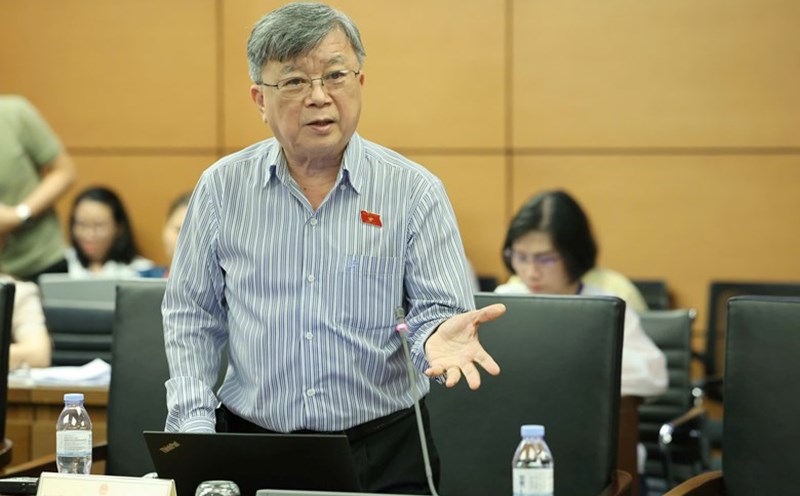Shortening the knowledge gap
The Ministry of Home Affairs has proposed in the draft Law on Cadres and Civil Servants (amended) with the goal of extending the retirement age to 70 years old for some specific fields with high technical requirements such as experts and consultants.
Citing international evidence, the Ministry of Home Affairs said that some countries regulate retirement at the age of 60 - 65, but have an early retirement regime when civil servants have ensured the number of years of work, want to focus on business, taking care of elderly parents and children. However, they extended their retirement age to 75 for some technical fields, high expertise, consultants, and experts.
From this reality, the Ministry of Home Affairs believes that Vietnam should refer to the experience of countries in regulating early retirement and for some areas requiring high technology, experts and consultants can extend the retirement age to 70.
Agreeing with the above proposal, Mr. Bui Sy Loi - former Deputy Chairman of the National Assembly's Committee on Social Affairs - said that gray matter should be taken advantage of by highly qualified people, especially in areas such as health, education, and research.
Vietnam is facing a population aging process and a shortage of high-quality human resources in many key industries. Continuing to exploit their experience and knowledge not only contributes to improving the quality of human resources but also helps shorten the development gap in knowledge and science and technology.
"The average life expectancy of people is increasing, many people at retirement age are still healthy, alert, and even mature in expertise and thinking. For these individuals, continuing to work is both a spiritual encouragement and also brings clear economic benefits, said Mr. Loi.
However, according to Mr. Loi, it is necessary to clearly separate professional capacity and management role to have appropriate policies, promoting both the intellectual resources of the elderly and the youth and the spirit of innovation of the next generation.
Consider health factors
The mid-term population and housing survey in 2024 released by the General Statistics Office in January 2025 shows that Vietnam's population continues to age. The number of elderly people aged 60 and over is currently 1.25 times higher than in 2019 and an increase of 4.7 million people (1.5 times) compared to 2014. It is forecasted that by 2030, the number of people aged 60 and over will increase by nearly 4 million people compared to 2024.
The aging index is the ratio of the population aged 60 and over compared to the population under 15 years old calculated as a percentage. In Vietnam, the aging index has tended to increase rapidly in the past 10 years, and tends to continue to increase in the following years.
Prof. Dr. Giang Thanh Long - senior lecturer at the National Economics University - commented that in the context of an aging population, dragging in the same aging workforce, having more elderly workers, especially workers in industries that require long-term accumulation skills such as healthcare, education, arts... will maintain the workforce and contribute to the economy.
He proposed that extending the retirement age to the age of 70 should only be an incentive policy, not a mandatory regulation, even in areas that require high expertise, experts, and consultants. The reason is that not everyone can take on a job at the age of 70.
Authorities need to study and specifically analyze factors such as health, occupation, position, and working environment when making laws. Elderly people working must also be assessed as having fair labor, ensuring labor productivity...", said Mr. Giang Thanh Long.











